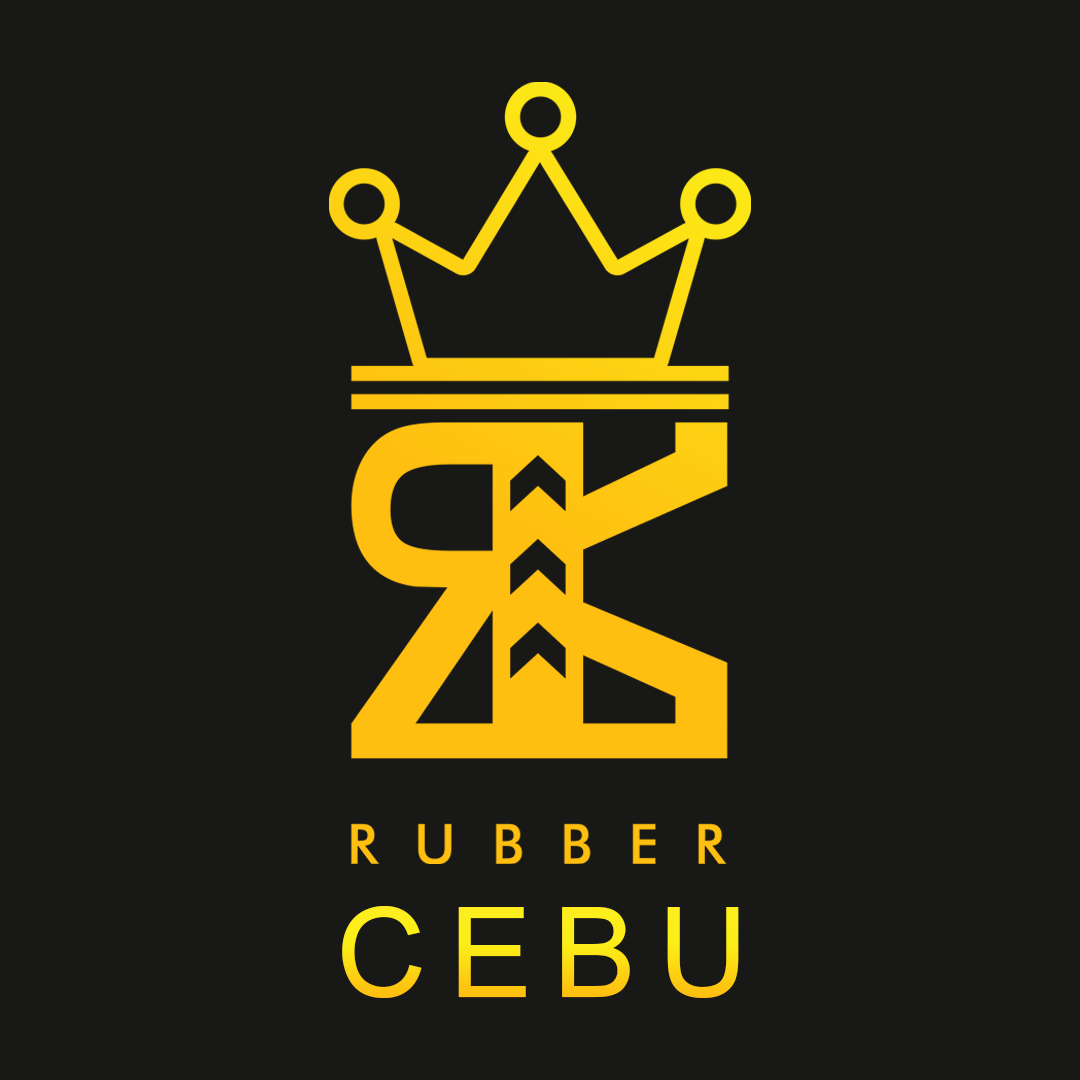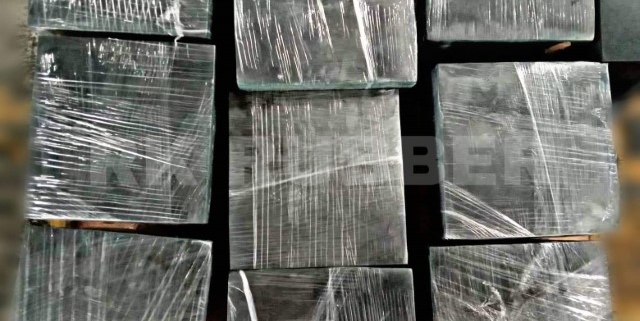Rubber Block
Rubber Block Supplier in Cebu City
Rubber block suppliers in Cebu City play a pivotal role in supporting the region’s industrial and construction sectors by delivering high-performance solutions designed to withstand demanding environments. These suppliers offer products crafted from advanced rubber compounds, ensuring resistance to wear, chemicals, and extreme conditions. With a focus on customization, they cater to diverse applications, from machinery isolation to marine engineering. However, the true value lies in understanding how these suppliers align with Cebu’s industrial growth while addressing sustainability and cost-efficiency. Exploring the nuances of their offerings reveals insights into optimizing operations and achieving long-term reliability.
Key Points
- Offers durable rubber blocks resistant to extreme temperatures, chemicals, and UV radiation for industrial and construction applications in Cebu City.
- Provides customizable sizes and designs tailored to meet specific operational needs in manufacturing, automotive, and construction industries.
- Ensures vibration and noise reduction, enhancing machinery efficiency and workplace safety in Cebu’s industrial settings.
- Utilizes sustainable manufacturing practices, including eco-friendly materials and energy-efficient technologies, to minimize environmental impact.
- Supplies high-quality rubber blocks meeting ISO, UL, and ASTM standards with competitive pricing and timely delivery in Cebu City.
Benefits of Rubber Blocks in Industrial Applications
Rubber blocks offer exceptional durability in harsh industrial environments, withstanding extreme temperatures, chemicals, and heavy loads without compromising performance. Their superior vibration and noise reduction properties enhance machinery efficiency and workplace safety, making them ideal for Cebu City’s growing industrial sector. Customizable solutions guarantee these blocks meet specific operational needs, providing tailored support for diverse applications across local industries.
Durability in Harsh Environments
In demanding industrial environments, the ability to withstand harsh conditions is a critical factor in material selection. Rubber blocks, particularly those supplied in Cebu City, excel in extreme temperature resilience, maintaining structural integrity in both scorching heat and freezing cold. Their chemical exposure resistance guarantees durability when exposed to oils, acids, and solvents, making them ideal for industries like manufacturing and automotive. Weatherproof performance is another key advantage, allowing rubber blocks to endure heavy rain, humidity, and other outdoor elements without degradation. Heavy load endurance is a standout feature, as these blocks can support substantial weights without deformation, guaranteeing long-term reliability in high-impact applications. Additionally, UV radiation protection is essential for outdoor use, with high-quality rubber compounds like EPDM and silicone offering superior resistance to sun damage. These properties make rubber blocks indispensable in Cebu’s industrial landscape, where harsh conditions are common. By combining technical expertise with locally tailored solutions, rubber block suppliers in Cebu City provide materials that meet the rigorous demands of modern industries, guaranteeing both performance and longevity.
Vibration and Noise Reduction
The ability to withstand harsh environments is complemented by the significant role rubber blocks play in mitigating vibrations and noise within industrial settings. In Cebu City, where industries such as manufacturing, construction, and automotive thrive, rubber blocks serve as essential soundproofing solutions and acoustic insulation materials. Their vibration damping properties effectively reduce machinery vibrations, minimizing noise levels and enhancing operational efficiency. This noise control capability is particularly valuable in high-impact environments, where heavy machinery and equipment generate substantial vibrations and sound waves. Rubber blocks excel in impact absorption, protecting both machinery and infrastructure from wear and tear caused by repetitive shocks. By absorbing sound waves and preventing their propagation, these blocks contribute to quieter workspaces, improving safety and comfort for workers. Industries in Cebu City benefit from rubber blocks’ ability to extend machinery lifespan, reduce maintenance costs, and comply with noise regulations. Their application in vibration damping and noise control underscores their importance in creating sustainable, efficient, and safe industrial environments.
Customizable Industrial Solutions
Offering tailored solutions to meet diverse industrial demands, rubber blocks provide unparalleled versatility and adaptability across various applications in Cebu City. These blocks are available in customizable sizes and tailored designs, guaranteeing they meet the precise requirements of industries such as construction, automotive, and manufacturing. With industry-specific solutions, rubber blocks are engineered to address unique challenges, from vibration damping in machinery to noise reduction in commercial spaces. Their flexible configurations allow for seamless integration into existing systems, enhancing operational efficiency and safety. Application-specific adaptations further guarantee peak performance, whether used as gaskets, seals, or protective barriers. In Cebu City’s industrial landscape, rubber blocks are indispensable for their ability to withstand harsh environments, reduce wear and tear, and extend the lifespan of equipment. By leveraging their customizable properties, businesses can achieve cost-effective, sustainable solutions that align with local industry standards and environmental goals. This adaptability makes rubber blocks a cornerstone of modern industrial applications, driving innovation and reliability across sectors.
Custom Rubber Block Solutions for Diverse Industries
Custom rubber block solutions cater to a wide range of industries, providing tailored applications that address specific operational challenges. These solutions are designed to meet unique requirements, guaranteeing peak performance in diverse environments. From industrial machinery to automotive systems, custom applications are engineered to deliver specialized adaptations that enhance efficiency and durability. Industry-specific designs are crafted to withstand harsh conditions, such as extreme temperatures, chemical exposure, and heavy loads, while maintaining structural integrity.
- Custom Applications: Tailored to fit precise operational needs, guaranteeing compatibility with specific machinery or systems.
- Industry-Specific Designs: Engineered for sectors like construction, automotive, and healthcare, addressing unique challenges in each field.
- Specialized Adaptations: Modified to provide superior vibration damping, noise reduction, and impact absorption, enhancing safety and performance.
In Cebu City, local suppliers leverage technical expertise to deliver high-quality rubber blocks that meet both regional and international standards. By focusing on tailored solutions, these suppliers guarantee that businesses across various industries can achieve their operational goals with reliability and precision.
Sustainable Rubber Block Manufacturing Practices
With a growing emphasis on environmental responsibility, sustainable rubber block manufacturing practices in Cebu City prioritize eco-friendly processes and materials. Manufacturers in the region are adopting eco-friendly materials, such as recycled rubber, to minimize environmental impact while maintaining product quality. Recycling initiatives play a central role, with facilities repurposing post-consumer rubber waste into durable blocks, reducing landfill dependency. Sustainable sourcing guarantees raw materials are ethically and responsibly obtained, supporting both local industries and global environmental goals. Waste reduction strategies are implemented at every stage, from production to packaging, to minimize excess and optimize resource use. Energy efficiency is also a key focus, with manufacturers investing in advanced technologies and renewable energy sources to lower carbon footprints. These practices not only align with global sustainability standards but also cater to the growing demand for environmentally conscious products in Cebu City’s industrial and construction sectors. By integrating these principles, local suppliers contribute to a greener future while delivering high-performance rubber blocks tailored to diverse applications.
Key Features of High-Quality Rubber Blocks
High-quality rubber blocks, whether utilized in industrial, automotive, or civil engineering applications, are distinguished by their superior material properties and functional benefits. These blocks are engineered with precise material composition to guarantee peak performance under demanding conditions. Key features include exceptional load capacity, enabling them to withstand heavy weights without deformation, and chemical resistance, which secures durability in environments exposed to harsh substances. Additionally, high-quality rubber blocks exhibit thermal stability, maintaining their structural integrity across a wide range of temperatures, and UV protection, which prevents degradation from prolonged sunlight exposure.
- Material Composition: Crafted from premium rubber compounds, guaranteeing durability and resistance to wear and tear.
- Load Capacity: Designed to support heavy loads without compromising structural integrity.
- Chemical and UV Resistance: Resistant to corrosive chemicals and UV rays, ideal for both indoor and outdoor applications.
These features make high-quality rubber blocks indispensable in Cebu City’s industrial and construction sectors, where reliability and longevity are paramount. Their adaptability to local environmental conditions further underscores their value in diverse applications.
Maintenance Tips
Guaranteeing the longevity and peak performance of rubber blocks in Cebu City’s industrial and construction sectors requires consistent and proper maintenance practices. Effective cleaning techniques are essential; use mild detergents and avoid harsh chemicals that may degrade the rubber material. Regularly remove dirt, grease, and debris to prevent premature wear. Adhering to proper storage guidelines is equally critical. Store rubber blocks in dry, cool environments away from direct sunlight and moisture to maintain their structural integrity and prevent degradation. Routine inspection methods should be implemented to identify signs of wear, cracks, or deformation early. Inspect for chemical exposure damage, especially in harsh industrial settings. For minor damages, employ repair strategies such as patching or sealing to extend usability. However, when wear exceeds repairable limits, follow replacement schedules to guarantee safety and performance. High-quality rubber blocks, when maintained properly, can withstand Cebu’s tropical climate and demanding industrial applications, securing reliable performance across construction, automotive, and commercial sectors. By integrating these maintenance practices, businesses can maximize the lifespan and functionality of their rubber blocks, supporting sustainable and cost-effective operations.
Choosing RK Rubber Cebu As Your Supplier
Proper maintenance practices are essential for maximizing the lifespan and performance of rubber blocks, but selecting the right supplier is equally important for guaranteeing consistent quality and reliability. RK Rubber Cebu stands out as a trusted partner for businesses in Cebu City, offering a combination of supplier reliability, competitive pricing, and local expertise. Their commitment to timely delivery secures minimal downtime, while their customer support team provides tailored solutions to meet specific industrial needs.
- Supplier Reliability: RK Rubber Cebu delivers high-quality rubber blocks that meet ISO, UL, and ASTM standards, guaranteeing durability and performance in demanding applications.
- Competitive Pricing: Their cost-effective solutions make them a preferred choice for businesses seeking value without compromising on quality.
- Local Expertise: With deep knowledge of Cebu’s industrial landscape, RK Rubber Cebu offers customized solutions that align with regional requirements and environmental conditions.
Frequently Asked Questions
What Is the Lead Time for Custom Rubber Block Orders?
Custom lead times for rubber blocks depend on production schedules, order processing complexity, and manufacturing duration. Delivery timelines typically range from 2-6 weeks, influenced by material availability, customization requirements, and local logistics efficiency.
Do You Offer International Shipping for Rubber Blocks?
Steering the global marketplace, international shipping for rubber blocks is available, with customized shipping rates, compliance with customs regulations, and accurate delivery timelines. Thorough international logistics and export documentation guarantee smooth cross-border transactions.
Are Your Rubber Blocks Compliant With FDA Standards?
Our rubber blocks undergo rigorous FDA certification processes, including material safety testing and regulatory compliance checks, ensuring adherence to food-grade material standards. FDA approval documentation is provided to confirm compliance with industry-specific requirements.
Can Rubber Blocks Be Used in Marine Environments?
Like a ship’s hull braving the ocean, rubber blocks excel in marine environments due to their saltwater resistance, marine durability, and corrosion prevention. Their buoyancy properties and suitability for underwater applications make them ideal for marine use.
What Is the Minimum Order Quantity for Rubber Blocks?
The minimum quantity for rubber blocks varies by supplier, often influenced by production capacity and bulk pricing structures. Order size may qualify for quantity discounts, with suppliers typically offering competitive rates for larger, standardized orders.
Conclusion
Rubber block suppliers in Cebu City redefine industrial resilience, offering unparalleled durability and precision-engineered solutions that withstand the harshest conditions. Their commitment to sustainability and ISO-compliant manufacturing guarantees unmatched quality, while customizable designs cater to every operational demand. By integrating cutting-edge technology and eco-conscious practices, these suppliers not only meet but exceed industry standards, solidifying Cebu’s position as a hub for innovation and reliability in industrial and construction sectors.

